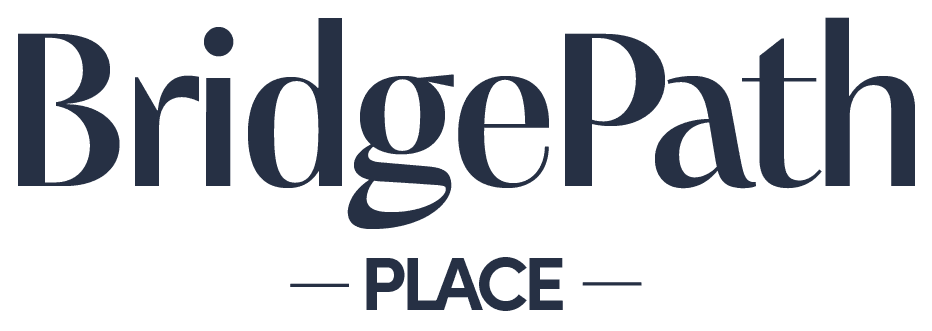
Living with an eating disorder can feel like a constant struggle, but using self-help strategies can be a powerful way to support your recovery journey. Whether you’re facing anorexia, bulimia, or binge eating disorder, it’s crucial to learn how to take those initial steps toward a healthier relationship with food and your body.
Eating disorders often arise from a combination of psychological, emotional, and societal influences. While seeking professional help is important, there are many things you can do to take back control of your life. Approaches like mindful eating, journaling, and connecting with supportive communities can help you identify your triggers and strengthen your resilience.
Recovery is not a straight path. There will be highs and lows, but every little step matters. By arming yourself with the right tools and mindset, you can start the healing journey and work toward a more fulfilling future.
Understanding Eating Disorders
Eating disorders can impact individuals of any age, gender, or background. Gaining a deeper understanding of these conditions can help you make sense of your experiences and take meaningful steps toward recovery.
What Are Eating Disorders?
Eating disorders are serious mental health issues that influence your relationship with food and body image. The most prevalent types include:
- Anorexia Nervosa: This condition is marked by extreme food restriction, an overwhelming fear of weight gain, and a distorted perception of one’s body.
- Bulimia Nervosa: This disorder is characterized by episodes of binge eating followed by purging, which may involve vomiting, laxatives, or excessive exercise.
- Binge Eating Disorder: This involves consuming large quantities of food in a single sitting, often without purging, resulting in feelings of guilt and shame.
These disorders can lead to significant physical and emotional consequences. They often arise from a mix of low self-esteem, past trauma, and societal pressures to conform to unrealistic body ideals.
Why Self-Help Matters
Self-help empowers you to take an active role in your recovery. It complements professional treatment by helping you develop awareness of your behaviours and triggers. Through self-help, you can build healthier habits and take steps towards reclaiming your confidence and well-being.
Self-Help Strategies to Aid Recovery
Taking the first steps towards recovery can feel daunting, but self-help strategies provide practical ways to make progress.
Mindful Eating
Mindful eating encourages you to slow down and truly experience your meals. Pay attention to hunger and fullness cues, savour each bite, and avoid distractions like phones or TV. This helps you reconnect with your body’s natural rhythms and reduces emotional eating.
Cognitive Behavioural Techniques
Cognitive behavioural techniques (CBT) can help you challenge negative thoughts about food and your body. For example, if you catch yourself thinking, “I must restrict my eating to feel in control,” you can reframe it to, “Eating regularly gives me the strength to heal.” These techniques are powerful tools for breaking unhealthy cycles.
Build a Support Network
Support groups and online communities offer a safe space to share your journey. Talking to others who understand what you’re going through can reduce feelings of isolation. In the UK, organisations like BEAT provide support groups and resources to help you connect with others facing similar challenges.
Tools and Resources for Self-Help
Equipping yourself with the right resources can make a huge difference in your recovery.
Self-Help Books
Books like “Life Without Ed” and “The Eating Disorder Recovery Workbook” provide practical exercises and relatable stories to guide you. These resources help you understand your disorder and build coping strategies.
Mobile Apps
Apps like “Recovery Record” and “Rise Up + Recover” are designed to support your journey. They help you track meals, emotions, and triggers, and often include motivational content to keep you on track.
Overcoming Challenges in Recovery
Recovery comes with its share of hurdles, but facing these challenges head-on can make you stronger.
Managing Relapses
Relapses can feel disheartening, but they’re a normal part of the recovery process. Recognise early warning signs, like obsessive thoughts about food or isolating yourself from loved ones, and address them quickly. Reaching out to your support network or revisiting self-help techniques can help you get back on track.
Coping with Triggers
Triggers can come from unexpected places, such as social situations or emotional stress. Identifying your personal triggers allows you to prepare for them. Techniques like mindfulness or grounding exercises can help you stay calm and in control when faced with a challenging situation.
When to Seek Professional Help
While self-help is an important part of recovery, professional support is sometimes necessary to address deeper issues.
When to Reach Out
If you find self-help strategies aren’t enough, or if your physical or emotional health is worsening, it’s time to seek help. Signs include:
- Significant weight changes.
- Persistent anxiety about food or body image.
- Health issues like fainting, irregular heartbeats, or severe fatigue.
- Emotional struggles such as depression or obsessive behaviours.
Professional Support Options
When managing an eating disorder, seeking professional support is a crucial step towards recovery. In the UK, several effective treatment options are available:
- Cognitive Behavioural Therapy (CBT): CBT is a widely recommended approach for treating eating disorders. It helps you identify and challenge negative thought patterns related to food, body image, and self-esteem, fostering healthier behaviours and coping strategies. The National Institute for Health and Care Excellence (NICE) endorses CBT for conditions like anorexia nervosa, bulimia nervosa, and binge eating disorder.
- Nutritional Counselling: Working with a registered dietitian can assist you in developing a balanced eating plan tailored to your needs. This guidance supports the restoration of physical health and promotes a positive relationship with food. Dietitians provide personalised advice to ensure nutritional adequacy and address any deficiencies resulting from disordered eating patterns.
- Inpatient and Outpatient Programmes: For more severe cases, structured programmes offer comprehensive care. Inpatient treatment provides 24-hour support in a hospital or specialised facility, focusing on medical stabilisation and intensive therapy. Outpatient programmes allow you to receive treatment while maintaining daily routines, offering flexibility alongside professional support. These programmes often include a multidisciplinary team approach, incorporating medical, psychological, and nutritional expertise.
- Support Groups and Charities: Engaging with organisations such as Beat, the UK’s leading eating disorder charity, can provide additional support. They offer helplines, online communities, and local support groups, connecting you with others who understand your experiences. These resources can be invaluable for sharing coping strategies and reducing feelings of isolation.
Remember, reaching out for professional help is a courageous and vital step towards recovery. Utilising these resources can significantly enhance your journey to better health and well-being.
Take the First Step Towards Recovery with BridgePath Place
Recovering from an eating disorder is a personal journey, and self-help strategies play a crucial role in that process. By practising mindful eating, confronting negative thoughts, and engaging with supportive communities, you can start to heal. It’s important to remember that setbacks are a normal part of recovery and can offer valuable lessons for growth.
If you ever feel overwhelmed, don’t hesitate to reach out for professional support. With the right tools, resources, and guidance, you can navigate the challenges of an eating disorder and work towards a healthier, happier life.
At BridgePath Place, we recognize the difficulties involved in eating disorder recovery. Our tailored programs blend professional support with self-help tools to assist you in creating a healthier future. With a focus on your individual needs, we provide the guidance necessary at every step of your journey.
Ready to Begin Your Journey?
Book your consultation today and take the first step towards a brighter, healthier future.
Frequently Asked Questions About Eating Disorder Recovery
What are the most common types of eating disorders?
The most common eating disorders are:
- Anorexia Nervosa: Extreme food restriction and a distorted body image.
- Bulimia Nervosa: Binge eating followed by purging behaviours.
- Binge Eating Disorder: Eating large quantities of food without purging, often leading to guilt.
How can self-help aid recovery?
Self-help empowers you to take an active role in your recovery by encouraging healthy behaviours. Techniques like mindful eating, journaling, and joining support groups help you build resilience and manage triggers effectively.
When should I seek professional help?
If self-help feels overwhelming or your health is deteriorating, seek professional help. Look out for significant weight changes, persistent anxiety about food, or physical health issues like fainting or heart problems. A professional can provide tailored therapies and medical support.
What self-help resources are available?
Resources like books (“The Eating Disorder Recovery Workbook”) and apps (“Recovery Record”) offer practical tools for managing eating disorders. These help you track progress, stay motivated, and connect with supportive communities.
